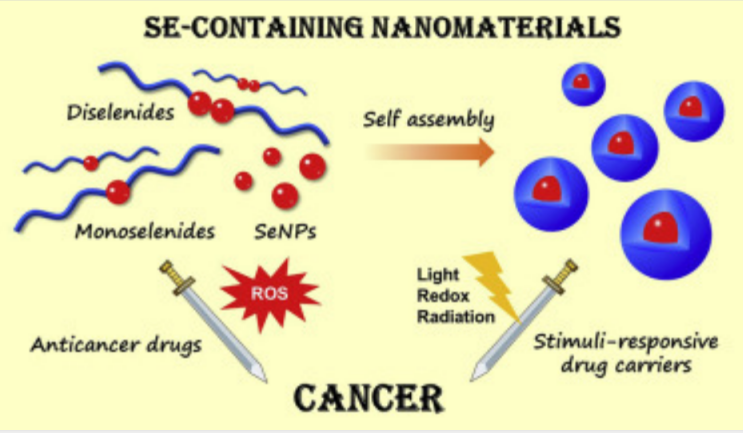Tianyu Li, Huaping Xu
Cell Rep. Phys. Sci.; 2020, 1, 100111.
Cancer remains a major global health problem, causing significant economic burden worldwide. Current clinical cancer treatments are unsatisfactory in terms of both antitumor efficacy and biocompatibility. Meanwhile, nanomaterials attract much attention as potential treatment strategies with improved antitumor efficacy and reduced side effects. Selenium-containing nanomaterials are considered to be a promising biomaterial candidate among many different approaches during the last decade. Selenium-containing nanomaterials exhibit good biocompatibility since selenium is an essential trace element in human body. With rational design, selenium-containing nanomaterials show high sensitivity to redox stimuli and anticancer activity. Here, we discuss the development of selenium-containing nanomaterials as drug delivery carriers and anticancer drugs for cancer treatment. The nanomaterials with promising performance both in vitro and in vivo could advance to clinical therapies.

